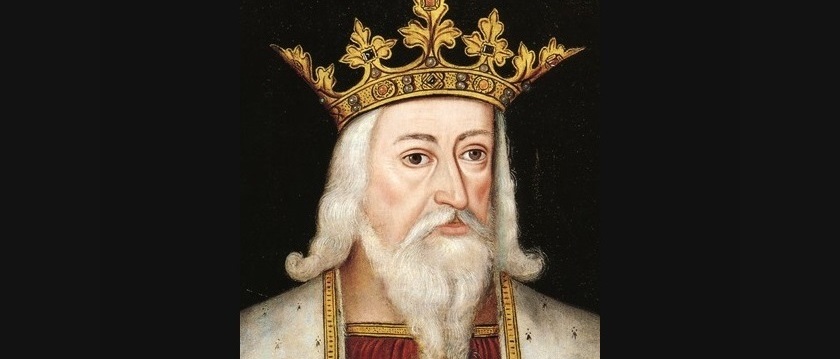Edward III of England
Posted on 4th January 2021
Edward was born on 13 November 1312 at Windsor Castle, Berkshire, England, the son of King Edward II and Isabella of France, he was commonly known as Edward of Windsor.
His early life was spent during a time of great struggles between his father and the English barons. His father Edward II was an ineffectual ruler who did not bond with his barons and was constantly at war with them over the rule of England.
When Edward was fourteen years-old his mother Isabella of France and her lover Roger Mortimer invaded England, forced Edward II to abdicate his throne and relinquish it to his son on 25 January 1327. Edward was crowned King Edward III on 1 February 1327.
Reign 1327 - 1377
As Edward was still a child, Mortimer became the temporary de-facto ruler of England.
To be able to invade England, Isabella had gained the support of Count William of Hainaut in France. She gained this support by agreeing a marriage between her son Edward and Hainaut’s daughter Philippa and they were married on 24 January 1328 at York Minster.
Their marriage produced fourteen children with their first born, a son Edward, later known as Edward the Black Prince, born on 15 June 1330.
Edward III had been crowned King, but Mortimer was still ruling the country. He was unpopular with his barons over the ongoing conflict with Scotland and the signing of the Treaty of Northampton in 1328. Mortimer knew he was in a precarious position of power and yet he still disrespected and antagonised Edward.
Finally, in 1330 Edward decided to take direct action against Mortimer. He and a number of allies surprised Mortimer at Nottingham Castle on 19 October and executed him; Edward now had direct control over England.
Edward immediately renewed war with Scotland, gaining some initial victories. He placed Edward Balliol on the throne of Scotland, however David II, son of Robert the Bruce regained the Scottish throne in 1337 and Edward agreed a truce.
Edward, believing he had a claim to the French throne, now turned his attention to war with France, later to become known as the Hundred Years War.
He won a decisive victory at the Battle of Sluys on 24 June 1340, and followed this with further victories including the Battle of Crecy on 26 August 1346 and the Siege of Calais which finally ended in August 1347.
The Black Death having already ravaged its way across Europe, now arrived in England in 1348 resulting in a third of the English population losing their lives.
Due to the high loss of life, there was now a shortage of farm labour in England, leading to inflated wage requests. To combat this, Edward created the ‘Ordinance of Labourers’ in 1349 and the ‘Statute of Labourers’ in 1351.
War with France commenced again in the early 1350’s. Edwards son, also Edward, the Black Prince was victorious at the Battle of Poitiers on 19 September 1356, where he captured and imprisoned the French King John II, who later died in captivity in 1364.
Although there was further military success, Edward finally agreed peace with France and signed the Treaty of Bretigny in 1360 where he relinquished his right to the French throne. He did however secure sovereignty over his possessions in France keeping control of the Duchy of Aquitaine and Ponthieu.
Edward had been a vibrant, athletic man in his youth, but he became a shadow of his former self as he aged. He showed little interest in the wars with France that resumed in 1369 and left battle to his sons, although they attained little success and lost much of the French territory that had previously been gained.
The military failure abroad led to the ‘Good Parliament’ that sat in London from 28 April - 10 July 1376. Criticism was made of the government, leading to the dismissal of Chamberlain, William Latimer and Steward of the Household, John Neville.
Queen Philippa died in 1369, leaving Edward to become reliant on Alice Perrers, his mistress since 1363. Parliament felt that she held too much control over Edward and she was eventually banished from court.
At this time both King Edward and his son Edward, the Black Prince were suffering from illness, leaving much of the control of the country in the hands of Edward III’s fourth son John of Gaunt, who was not popular in parliament and would later reverse much of the agreements of the ‘Good Parliament’.
By 1375 Edward held only a limited role in government and his health was deteriorating. In 1376 his son Edward, the Black Prince died which upset him greatly.
Edward already suffering from an abscess also suffered a stroke and died on 21 June 1377. He is buried in Westminster Abbey.
He was succeeded by his grandson Richard, son of Edward, the Black Prince.
Tagged as: Junior Middle Ages
Share this post:





